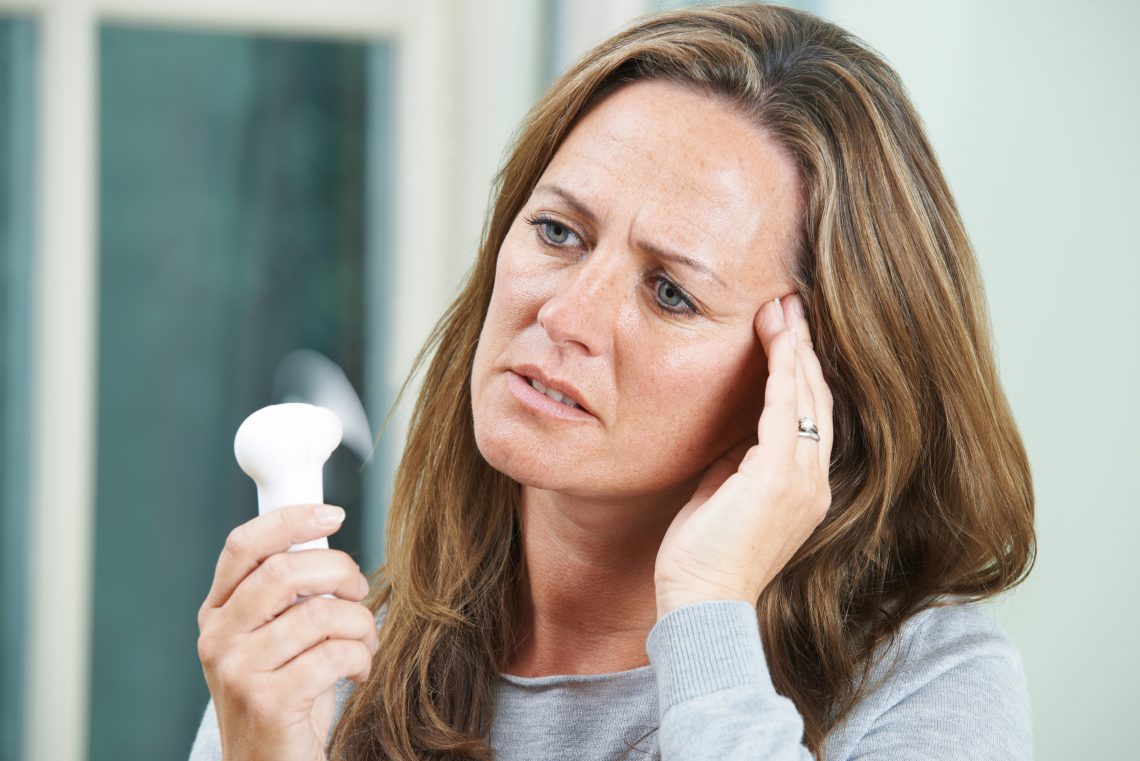Menopause is a natural process that all women go through as they get older. It marks the end of a woman’s reproductive years and brings many changes to her body. Before menopause starts, there is a phase called perimenopause.
Perimenopause can begin 5 to 10 years before menopause. It is marked by hormonal changes and symptoms like irregular periods, hot flashes, and mood swings. Though this phase can seem tough, it will eventually end.
So how do you know what to look out for? Here are some signs perimenopause is ending:
Changes in Menstrual Cycle
One of the first signs perimenopause is ending is a change in your menstrual cycle.
Frequency
As you get closer to the end of perimenopause, your periods might not come as often. You might skip a period or two and then have a couple of heavy ones. This happens because your ovaries are making less estrogen, which causes your ovulation to be irregular.
With less estrogen, your body goes through changes that affect how often and how heavy your periods are. These changes are a normal part of nearing menopause.
Duration
As you get closer to menopause, the length of your periods might change. They could become longer or shorter than usual because of changes in your hormones. These fluctuations can make it hard to predict when your period will come and how long it will last.
Flow
As you near the end of perimenopause, you might notice changes in your periods. They can become heavier or lighter than usual because your hormone levels are shifting. This is a normal part of the process.
Symptom Changes
The end of perimenopause symptoms can be a relief, as many women experience uncomfortable symptoms. This includes:
Hot Flashes and Cold Flashes
Hot and cold flashes are usual symptoms of perimenopause. When your estrogen levels drop, you might have fewer or less intense hot and cold flashes. It’s a normal part of the process that many go through. Knowing this can help you understand and manage these changes better.
Mood Swings
Hormonal changes can make your mood swing during perimenopause. As your hormones settle down near the end of this phase, you might notice fewer mood swings. It’s a tough time, but knowing that it will get better can help you cope.
Sleep Disturbances
Many women find they have trouble sleeping, like dealing with insomnia, during perimenopause. These sleep problems might get better as you get closer to the end of this phase.
It’s common to wake up often or have a hard time falling asleep. Getting good rest is important, so talk to your doctor if sleep issues are affecting your daily life.
Physical Changes
Along with changes in your menstrual cycle and symptoms, there are also physical changes that can signal the end of perimenopause.
Vaginal Dryness
As estrogen levels drop, many women feel vaginal dryness during perimenopause. By the end of this time, your body might make more natural lubrication again.
This can be a relief for many. It’s important to know that these changes are normal. Talking to a doctor can help manage these symptoms.
Bladder Issues
Changes in estrogen levels can cause bladder problems such as needing to pee more often and feeling a strong urge to go. These issues might get better as you go through menopause and your hormones settle down.
Bone Density Changes
Estrogen helps keep your bones strong, so during perimenopause, the risk of osteoporosis goes up. But towards the end of this phase, your hormones can balance out, which might lower the risk of more bone loss.
It’s important to take care of your bones by eating well and staying active. Adding calcium and vitamin D to your diet can help too. Regular check-ups with your doctor can also keep you on track.
Changes in Libido
Another sign that perimenopause is ending is changes in your sex drive. During this time, hormones can go up and down, leading many women to feel less interested in sex.
But as you get closer to menopause and your hormones settle down, you might find that your sex drive comes back. This shift can be different for everyone, but it’s a normal part of the process as your body adjusts.
Blood Tests
If you’re not sure if your perimenopause is ending, your doctor can do a blood test to check your hormone levels. When estrogen levels go down and follicle-stimulating hormone (FSH) levels go up, it could mean menopause is close.
It’s important to talk to your doctor about any symptoms you’re experiencing and what steps you can take to manage them. Regular check-ups can help you stay informed about your health during this time.
What Happens Next?
Perimenopause to menopause is a gradual transition, and the signs of perimenopause ending may differ for each woman. Some women may experience abrupt changes, while others may have a smooth transition. After perimenopause ends, you will enter menopause when your periods completely stop for 12 consecutive months.
Managing the Transition
Perimenopause can be a challenging phase, but there are ways to manage the symptoms and make the transition easier. Here are some tips:
Eat a Balanced Diet
A healthy diet rich in calcium, vitamin D, and other essential nutrients can help alleviate symptoms like hot flashes and mood swings during perimenopause.
Exercise Regularly
Regular physical activity can help regulate hormone levels, improve sleep quality, and reduce stress during perimenopause.
Medical Support
If your symptoms are severe, talk to your doctor about medical treatments that can help manage them. Hormone replacement therapy is a common option for managing perimenopause symptoms.
Support Groups
Joining a support group or chatting with other women who are also experiencing perimenopause can be helpful. It can give you important information and much-needed emotional support during this time. Sharing stories and advice can make this phase a bit easier to handle.
Discover the Signs Perimenopause is Ending with this Guide
Perimenopause is a natural phase in a woman’s life that will eventually come to an end. Understanding the signs perimenopause is ending can help you prepare for what comes next – menopause. Remember to take care of yourself and seek medical support if needed as you navigate this transition. So, keep an eye out for these signs and make the necessary lifestyle changes to ease into this next stage of life with grace and ease.
Read more lifestyle articles at ClichéMag.com
Images provided by Deposit Photos, BingAI, Adobe Stock, Unsplash, Pexels, Pixabay & Creative Commons





